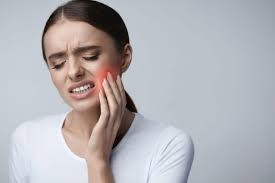A toothache is pain that you feel in or around your tooth. Usually, toothache indicates that there is something wrong with the tooth or gum around that particular tooth. Toothache is one of the most common oral health complaints with prevalence in Nigeria. It is worthy of note that at times, nothing may be wrong with the tooth or gum and the toothache may have been as a result of a referred pain somewhere else. This indicates the importance of seeking professional advice whenever you have symptoms of toothache as majority of the Nigerian population would rather try various home remedies instead of visiting the dental clinic.
Toothaches are usually not life-threatening. However, in some cases they can be signs of serious medical condition that requires immediate medical attention as in cases of Ludwig’s angina, oral malignant cancers, necrotizing fasciitis etc. Thus, toothaches should never be ignored as even tooth decay can get worse if left alone for a while. Early presentation has proven to be beneficial to patient in the immediate and long term.
WHAT DOES TOOTHACHE FEELS LIKE?
Pain from toothaches has various characteristics based on the cause of the toothache. Pains can be characterized as the following:
- Sharp Pain when food, cold/hot water touches the tooth;
- Sharp pain on biting the teeth together;
- Throbbing pain in or around the tooth and gum;
- Shocking pain when cold water is taken;
- Dull ache around the tooth and gum;
- Burning sensation which is uncommon.
WHAT ARE THE CAUSES OF TOOTHACHE?
- Tooth Decay – This is the most common cause of toothache. This occurs when there is a hole on the tooth.
- Gum Disease – This occurs when there is plaques & tartar around the tooth that irritates the gum and makes the tooth lose its supporting structure over time and may be mobile.
- Fracture – This is when the tooth or bone holding the tooth gets broken.
- Attrition/Abrasion/Erosion – This refers to wearing off of the tooth due to use of chemical substance (e.g. drinking acidic drinks) or mechanical means (e.g. abrasives, teeth grinding, teeth scraping with metals etc.)
- Impacted Tooth – This occur when one of the teeth usually the wisdom tooth is buried in gum or bone and thus unable to erupt properly into the mouth.
- Neuralgia – This occurs when some nerves usually the Trigeminal nerve is inflamed or irritated and this is felt as though the pain is coming from the tooth. This is an example of referred pain.
- Sinusitis – This is inflammation of the sinuses. Some of the roots of the upper teeth communicate with the sinus cavities and thus when there is an infection of the sinuses; it can be felt as toothache.
- Heart Disease – In rare cases, toothache may be a symptom of Ischemic heart disease especially when chest pain is absent.
- Tumors – usually malignant tumors may present with toothaches.
WHEN SHOULD I VISIT THE DENTAL CLINIC?
You should see your dentist as soon as possible about your toothache:
- If the pain persists or reoccur within two days;
- When there is associated swelling;
- When there is inability to open the mouth well, fever or earache;
- When there is inability to swallow foods properly;
- When there is associated chest pain, coughing up of blood, breathlessness etc;
- When pain affects sleep, daily activities etc.
HOW DO I TREAT MY TOOTHACHE?
Treatment of a toothache is dependent on the cause of the ache and that is why it is important to visit a dentist rather than self-medicate. The dentist will take a history of the pain, may do some tests or take X-ray depending on what may be the cause of the ache. The treatment may range from simple filling of the tooth in cases of tooth decay, to doing root canal treatment or extraction if it has to do with abscess and may require referral to see a cardiologist if an underlying heart disease is suspected.
CAN TOOTHACHE BE PREVENTED?
Toothaches are commonly caused by tooth decay and thus can be prevented by maintaining good oral hygiene practices. This involves brushing twice daily with medium bristle toothbrush and a fluoride containing toothpaste, rinsing the mouth after every meal, use of dental floss, reducing intake of sugary foods and regular visitation to the dentist at least twice a year for professional cleaning and general oral checkup.
